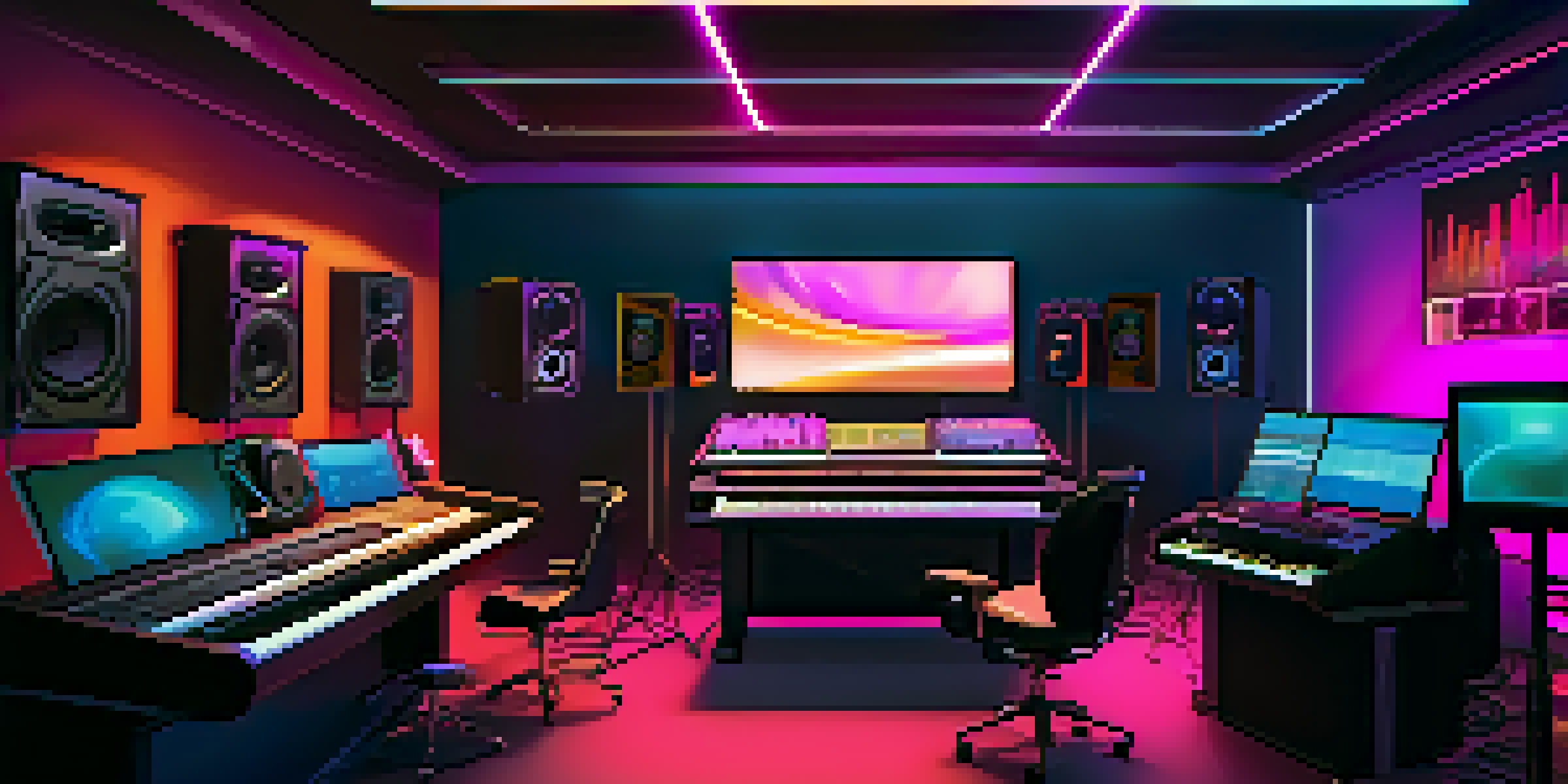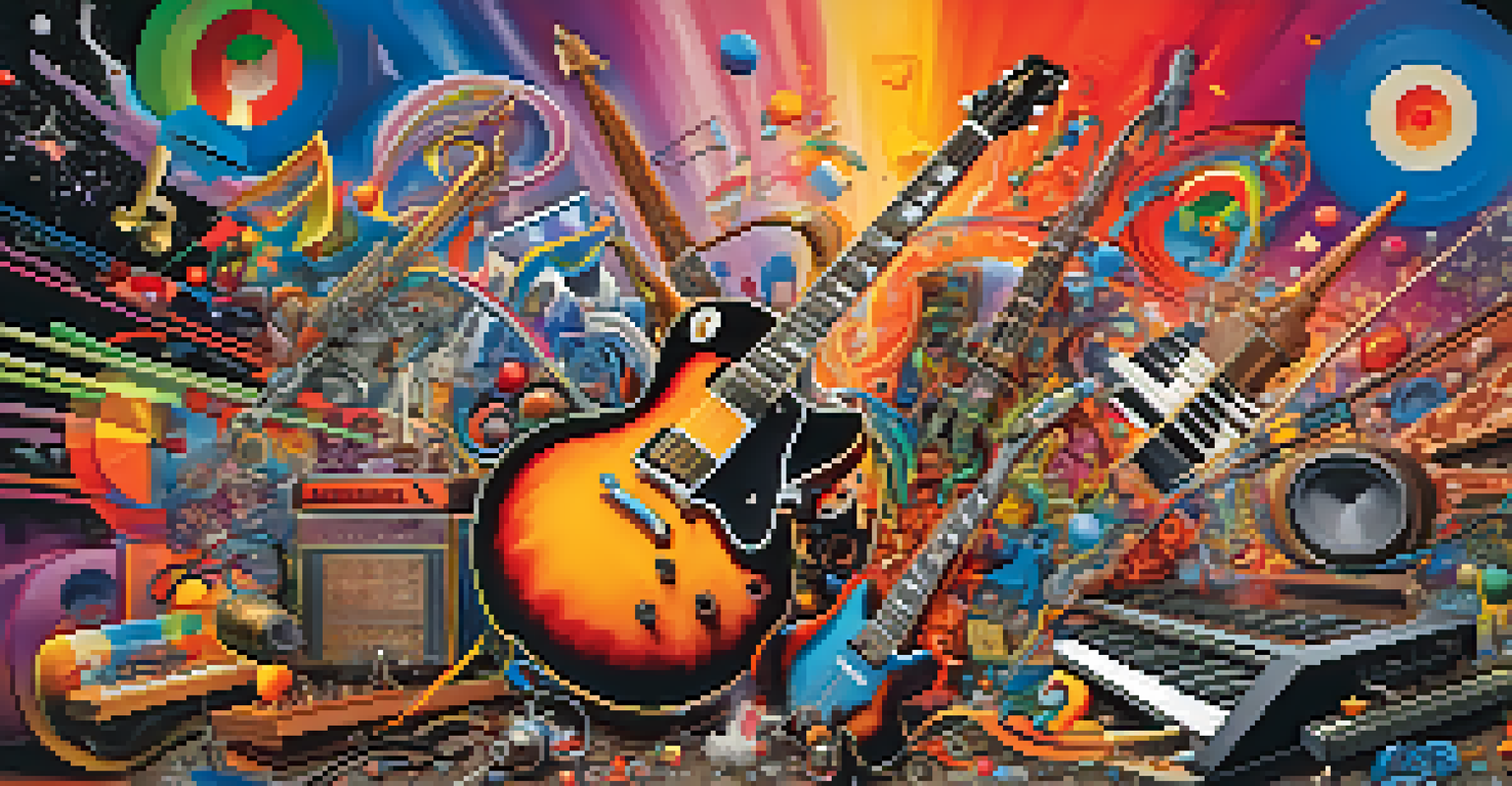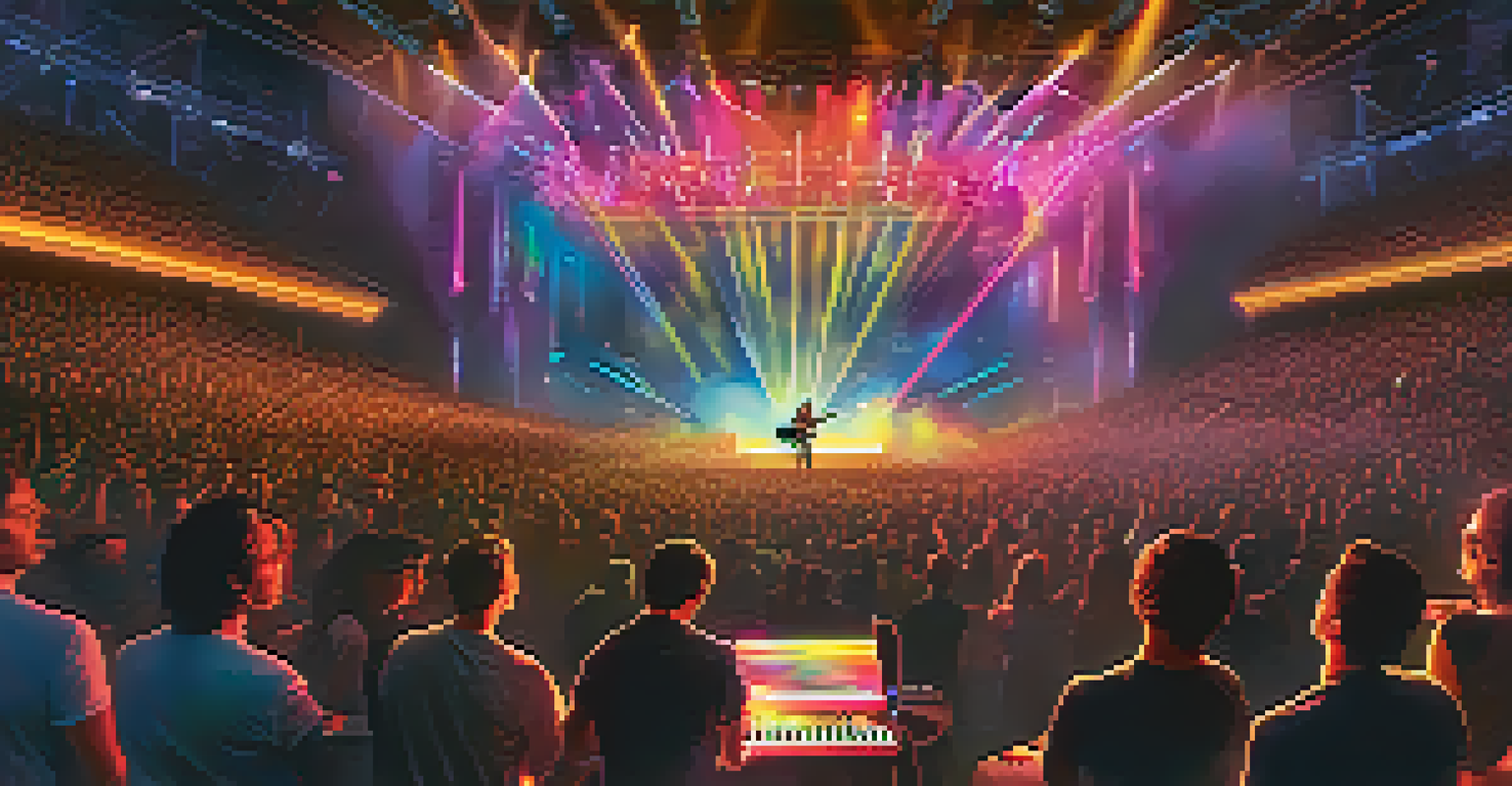How Artificial Intelligence is Shaping Music Genre Trends

The Rise of AI in Music Creation and Production
Artificial Intelligence is revolutionizing how music is created and produced. With AI tools, musicians can experiment with sounds and genres they might not have explored otherwise. For instance, platforms like Amper Music allow users to generate unique tracks by simply inputting their preferences, making music creation more accessible than ever.
AI is not just a tool; it’s a partner in the creative process, opening up new avenues for exploration and innovation in music.
This technology not only aids in composition but also in mixing and mastering tracks. AI algorithms can analyze existing music to suggest adjustments that enhance the overall sound quality. As a result, even those with limited technical skills can produce high-quality music, leading to a surge in new and diverse genres.
Moreover, as artists leverage these tools, we see the emergence of hybrid genres that blend elements from different musical styles. This cross-pollination enriches the music landscape, allowing for innovative creations that reflect a blend of cultural influences.
AI and Music Recommendation Systems
AI plays a crucial role in how listeners discover new music today. Streaming services like Spotify and Apple Music use machine learning algorithms to analyze user behavior and preferences. By examining what you listen to, these platforms can recommend tracks that align with your taste, often introducing you to genres you might not have considered before.

These personalized playlists not only enhance user experience but also influence the popularity of emerging genres. As listeners are exposed to a wider variety of music, artists from niche genres gain traction and visibility, helping them reach broader audiences.
AI Transforms Music Creation
Artificial intelligence is revolutionizing music production by enabling artists to experiment with new sounds and genres easily.
The feedback loop created by these recommendations leads to a continuous evolution of genre trends. As new artists gain followers through curated playlists, their unique sound can inspire other creators, further shaping the musical landscape.
The Impact of AI on Music Marketing
Marketing in the music industry has also been transformed by AI, making it easier for artists to reach their target audience. By analyzing data on listener demographics and preferences, AI tools can help artists tailor their promotional strategies effectively. This means that a new indie band can now find their niche audience with precision, rather than relying on broad marketing tactics.
The future of music is not about man versus machine, but about how we can use technology to enhance our creativity.
Furthermore, AI can optimize ad placements and social media campaigns, ensuring that artists’ content is seen by those most likely to engage with it. For example, algorithms can determine the best times to post about new releases, maximizing visibility and interaction.
As a result, more artists can succeed in a competitive landscape, pushing genre boundaries as they experiment with various sounds and styles to attract listeners. This evolution in marketing not only benefits artists but also enriches the music scene with fresh, diverse sounds.
AI's Role in Live Music Experiences
As live music returns post-pandemic, AI is enhancing concert experiences for fans and artists alike. From virtual reality concerts to AI-driven light shows, technology is making live performances more immersive and enjoyable. For instance, AI can analyze the crowd’s energy and adjust lighting and sound in real-time, creating a more dynamic atmosphere.
Additionally, AI can assist in logistics, helping event organizers manage ticket sales and crowd control efficiently. This means fewer hiccups during performances and a smoother experience for everyone involved, allowing artists to focus on their craft.
Personalized Music Discovery
AI-driven recommendation systems enhance the way listeners discover new music, expanding their exposure to diverse genres.
These innovations not only improve the quality of live shows but also influence the types of music that thrive in concert settings. With more diverse performances and engaging experiences, audiences are exposed to a variety of genres, which can lead to new trends in the music industry.
AI and Genre Blending: A New Musical Frontier
One of the most exciting developments in music influenced by AI is the rise of genre blending. By analyzing vast libraries of music, AI can identify unique combinations of elements from different genres. For example, a hip-hop artist might collaborate with an electronic producer to create a sound that’s both rhythmic and melodic, resulting in a completely new genre.
This blending encourages artists to step outside traditional boundaries, experimenting with various influences and styles. The result is a rich tapestry of sound that reflects the diverse tastes of today's listeners, often leading to the birth of entirely new genres.
As these genre-blending tracks gain popularity, they challenge the norms of music classification, pushing the industry to keep evolving. This constant innovation keeps the music landscape vibrant and relevant, appealing to an ever-growing audience.
Challenges and Ethical Considerations of AI in Music
While AI brings numerous benefits to the music industry, it also raises important challenges and ethical questions. For instance, the use of AI-generated music can blur the lines of authorship and creativity. When a song is composed by an algorithm, who holds the rights to it—the programmer, the artist, or the AI itself?
Moreover, there’s a concern that reliance on AI could lead to homogenized soundscapes, where music begins to sound similar due to algorithmic influences. This could stifle creativity as artists feel pressured to conform to trends dictated by AI, rather than exploring their unique artistic visions.
Ethical Challenges in AI Music
The rise of AI in music raises important ethical questions about authorship and the potential for homogenized soundscapes.
Navigating these challenges requires ongoing discussions within the industry. As AI continues to evolve, finding a balance between leveraging its capabilities and preserving the essence of human creativity will be crucial for the future of music.
The Future of AI and Music Genre Trends
Looking ahead, the role of AI in shaping music genre trends is likely to expand even further. As technology advances, we can expect more sophisticated AI tools that not only assist in music creation but also predict upcoming trends based on data analysis. Imagine an AI that can foresee which genres will resonate with listeners before they even hit the mainstream.
This predictive capability could empower artists to experiment confidently, knowing they are tapping into emerging trends. It may also lead to more personalized listening experiences, where AI curates music not just based on past behavior but also anticipates future preferences.

Ultimately, the intersection of AI and music will continue to foster innovation and creativity. As artists and technologists collaborate, the music landscape will evolve in unexpected and exciting ways, making it an exhilarating time to be a fan and creator alike.